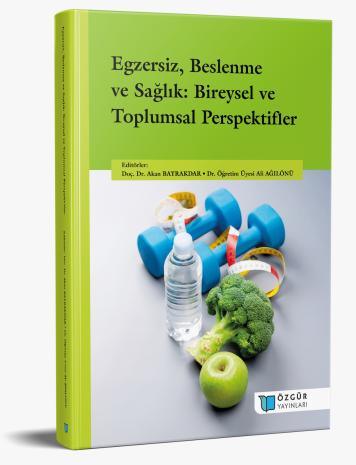
The Role of Probiotics and Prebiotics in Sports Nutrition
Chapter from the book:
Bayrakdar,
A.
&
Ağılönü,
A.
(eds.)
2025.
Exercise, Nutrition and Health: Individual and Societal Perspectives.
Synopsis
This section discusses the role of probiotics and prebiotics in athlete nutrition. Gut microbiota is considered a critical component of athlete health in terms of the immune system, performance, and recovery processes. Probiotics are live microorganisms that support the host's gut health when taken in appropriate doses, with fermented foods being their primary source. Prebiotics, on the other hand, are compounds with an indigestible carbohydrate structure that promote the growth of beneficial microorganisms.
The use of probiotics and prebiotics in athletes offers benefits such as strengthening the immune system, reducing upper respiratory tract infections, preventing gastrointestinal disorders, suppressing inflammation, and reducing oxidative stress. They also have positive effects on psychological well-being by supporting energy metabolism, increasing nutrient absorption, producing short-chain fatty acids, and regulating the gut-brain axis.
In practice, individual differences, dosage, duration, and method of use should be considered; safe and controlled use should be prioritised for both food-based and supplement forms. Consequently, the regular and appropriate consumption of probiotics and prebiotics is considered an important strategy for maintaining performance, accelerating recovery, and supporting overall health in athletes.

